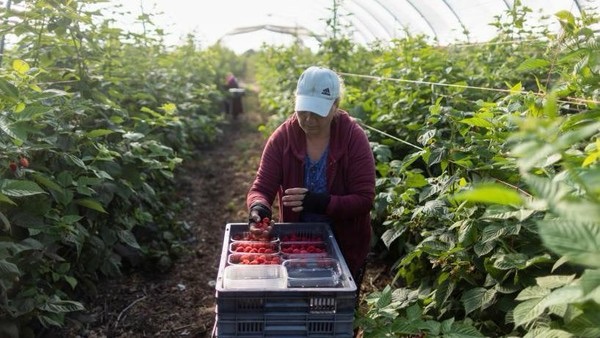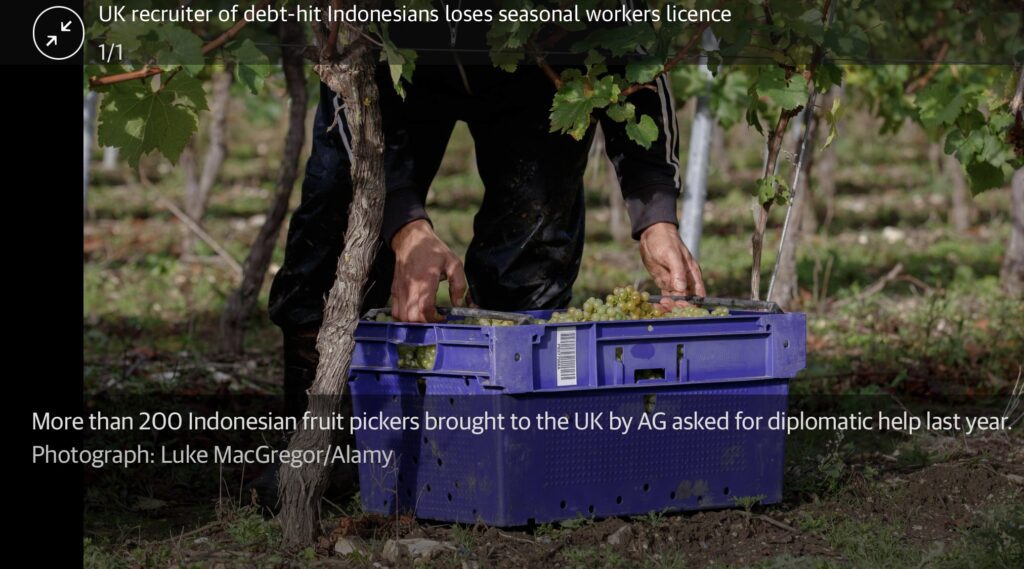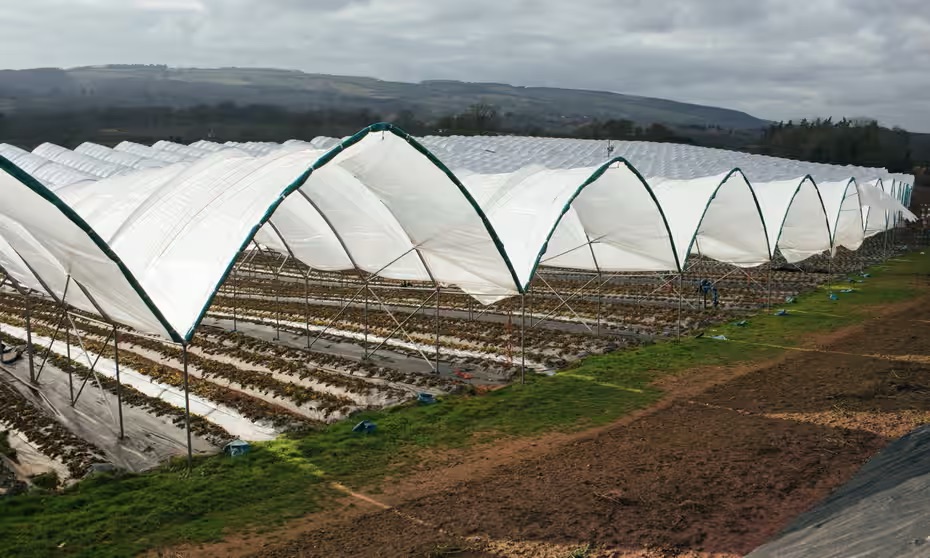April 30th 2024: BBC World – England again employs seasonal fruit pickers from Indonesia (translation)
Jakarta – After being stopped for a while, the UK will resume employing seasonal workers from Indonesia in 2024 as seasonal fruit pickers. What mitigation is being done so that the incident of Indonesian workers running away during placement in 2022 does not happen again?
Source: The BBC – 30th April 2024
The first group of a total of 500 Indonesian migrant workers (PMI) sent to England to work in the plantation sector through the seasonal worker scheme in the 2024 picking season will depart from Soekarno-Hatta Airport, Jakarta on Tuesday (07/05).
The departure of 20 Indonesian workers is the first since the UK decided not to employ workers from Indonesia in 2023 because many PMI decided to flee. They did not return to Indonesia even though their visa validity period had expired.
The decision to become an illegal immigrant was reported in depth by BBC News Indonesia in articles entitled Indonesian citizens who are former seasonal fruit pickers who become illegal immigrants and asylum seekers in England – ‘This is the easiest shortcut’ and Working on British plantations: Thousands of Indonesian citizens lose hope of leaving in 2023 .
Among the PMIs departing in the first batch in 2024 is Raka Kristiyadi, a 26 year old man from Depok, West Java.
He is an agribusiness graduate who has worked in the financial sector and was also a TikTok content moderator.
For Raka, the seasonal work scheme on British plantations offered better opportunities than his previous career.
“[The] money factor can no longer be denied because the salary is in pounds sterling and after I calculated it, Alhamdulillah. That’s enough, God willing,” said Raka in a long-distance conversation with journalist Rohmatin Bonasir who reported for BBC News Indonesia, on Thursday ( 04/18).
Another factor, continued Raka, was that he hoped that working on an English plantation would be the best experience according to his field of study.
“I want to learn a lot in England. The best agriculture in the world is the Netherlands, Australia and England.”
“I can work in England. I want to learn,” he said, adding that his work experience in England could be used to develop agriculture in Indonesia.
Unlike Raka, Pinkan Lydia Christien has joined the seasonal worker scheme in 2022.
Pinkan, along with thousands of other PMIs, was recruited to go to England for the first time in 2022. After working on a British plantation for six months in 2022, Pinkan returned to Indonesia.
According to his contract, he was supposed to return to England for the following year’s picking season. However, he failed to leave because PMI’s deployment to England in 2023 did not take place.
But this year, after the UK reopened the recruitment of seasonal workers from Indonesia, Pinkan returned to the recruitment process.
“Because I had resigned (resigned) from my job as a kindergarten teacher when I registered for the first wave and I no longer have a job here,” he explained.
According to him, different from the recruitment he carried out previously, this time the recruitment is more selective.
This time, he had to go through a screening process of a series of tests and examinations related to his mastery of English, knowledge of agriculture, and matters related to his future work.
“There’s no such thing as the first one. Register straight away, apply for a visa and then if all the documents pass and get a visa then go,” said Pinkan.
Ethical recruitment process
In 2024, Raka, Pinkan and their friends were departed by PT Mardel Anugerah Internasional, an Indonesian Migrant Worker Placement Company (P3MI) which has offices in Jakarta
This is the first time PT Mardel has sent PMI to England and this placement was made possible thanks to collaboration with AGRI-HR, one of the British companies designated by the country’s Ministry of Home Affairs as an operator to bring in seasonal workers for the plantation sector in 2024.
The President Director of PT Mardel, Delif Subeki, said that his company’s involvement in sending Indonesian seasonal workers to England did not look at the business side alone, but instead positioned it as an opportunity to improve the welfare of the Indonesian people.
“This factor is actually one of the triggers and encourages us to be able to send Indonesian migrant workers to SWS UK (UK seasonal worker scheme),” he explained.
Past stories
- Indonesian former seasonal fruit pickers becomes illegal immigrant and asylum seeker in England – ‘This is the easiest shortcut’
- Thousands of Indonesian citizens have lost hope of working on British plantations in 2023, the Indonesian Embassy in London is anticipating delivery next year
- Indonesian migrant workers in the UK: Third fastest seasonal fruit pickers, huge income, but very high costs to agents
However, the case of around 250 Indonesian citizens who decided not to return home after their six-month visa expired is a cause for concern in the UK.
AG Recruitment’s permit to operate seasonal workers from Indonesia in 2022 has even been revoked by the British government. The company collaborates with PT Al Zubara in Indonesia.
The permit revocation was carried out following reports that many workers imported from Indonesia had fled, even though seasonal workers were required to return home after their visa expired.
In addition, workers have incurred large costs in the recruitment and departure process from Indonesia. In fact, some of them are in debt.
In the first shipment from Indonesia in 2022, there was1,422 workers. They were sent by PT Al Zubara Manpower Indonesia (PT AMI) in collaboration with AG Recruitment.
“Regarding the high percentage of absconders in previous placements by other companies, we have studied the cause and we already have mitigation for this problem,” said Delif Subeki, President Director of PT Mardel.
The reason PMI fled was, among other things, because they took on debt to finance their departure to England.
In the recruitment process, they do not register directly with PT Al Zubara, but rather through agents and brokers. These intermediaries charged large fees to ensure PMI was sent to England. At that time, deliveries to the UK did not yet have a placement cost reference that was used as a benchmark.
Even though it cost a lot of money, not all workers were lucky enough to be able to work for the full six months according to the contract.
Those who departed towards the end of the harvest season could not get maximum income because there was less fruit to pick, so the potential income of the pickers was reduced.
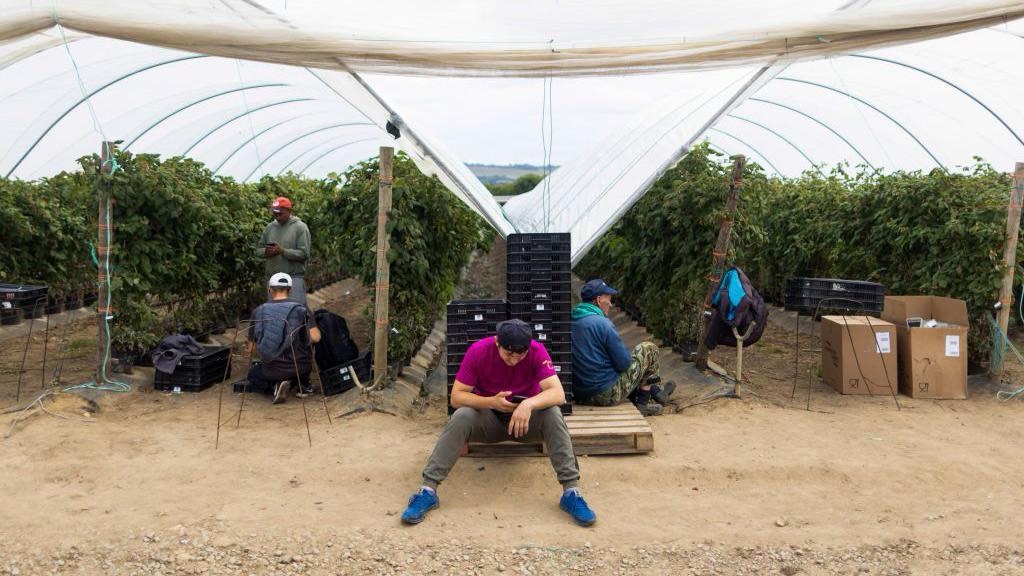
Mitigation is achieved, said Delif, through what is known as ethical recruitment.
Candidates register online, directly without going through brokers or agents. They then undergo several screening stages, including face-to-face interviews as well as color blindness and dexterity tests.
Still according to Delif, PT Mardel “will not charge agency fees (company fees) to Indonesian migrant workers.”
PMI candidates must also be able to cover all placement costs, including paying for visas, health checks, BPJS insurance, return plane tickets. All expenses must be paid from the account of each PMI candidate.
Based on the decision of the Indonesian Migrant Worker Protection Agency (BP2MI), the reference cost for placing PMI in the UK is less than IDR 40 million. This is much lower than the costs incurred by PMI in shipping in 2022.
“For the first placement, I personally spent up to IDR 55 million. That’s excluding other small costs. Now it’s only IDR 33 million,” said Pinkan, who lives in Jakarta.
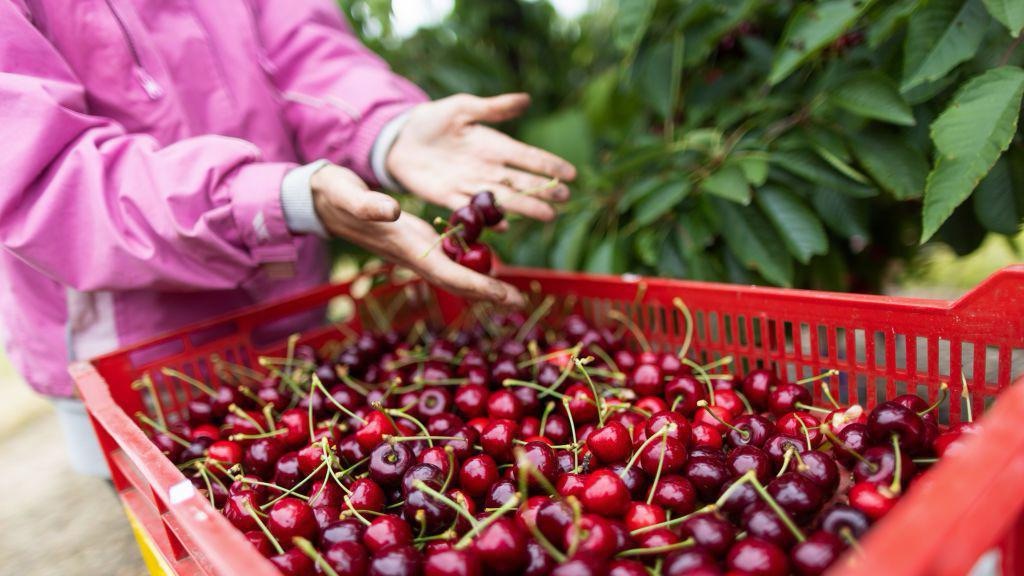
For this picking season, PT Mardel received orders for 500 workers.
Having stated that they were not interested in recruiting from Indonesia amidst the chaos of Indonesian citizens fleeing, AGRI-HR has now changed its mind. There are four reasons behind the change.
The seasonal worker operator wants to expand its hiring territory.
“Indonesia is very interesting because there is great interest in this scheme. Second, our partner PT Mardel Internasional meets our business standards.
“Third, the plantations that employed people from Indonesia previously liked them and wanted them to return,” explained AGRI-HR director, Jan-Willem Naerebout, to Rohmatin Bonasir reporting for BBC News Indonesia.
As for the final factor, he added, the role of the Indonesian Embassy in London was “very helpful in developing this ethical recruitment pathway”.
What will happen to workers who run away in 2022?
In the first placement in 2022, around 250 PMI fled. Some of them have returned to Indonesia, either of their own free will or because they were deported. However, the majority still live in England.
In order to stay legally, some of them apply for asylum by paying lawyers or service bureaus. They applied for asylum as a way to live and work in the UK.
The reasons are varied; falling into debt for departure costs, admitting to being gay or lesbian.
Because asylum status is usually given to people whose safety cannot be guaranteed in their country of origin, for example because of war and persecution, the asylum applications of most Indonesian citizens who are former seasonal fruit pickers have been rejected.
Indonesia is in the safe country category. They still have the option to appeal.
“From the start, the reason I stayed here was to seek a better life,” said Ana (pseudonym), one of the former plantation workers who applied for asylum.
“The debt for the placement fee has been paid off. Now I am looking for a living for the future.”
Ana has deposited Pound 2,000 (around Rp. 40 million based on current exchange rates) with a lawyer to handle her asylum application. Ana’s application was rejected. Now he has filed an appeal.
Many also pay around Pound 3,000-4,000 (Rp. 60 million-Rp. 80 million) for the services of a lawyer or agent. There is actually no fee for applying for asylum to the British government.
Apart from those who apply for asylum, there are also those who dare to survive without documents. Working odd jobs, they earn a living without a contract and are often at risk of exploitation.
“All debts have been paid off, the house is ready. Now I am looking for additional capital for a business in Indonesia,” said a former seasonal fruit picker who asked the BBC not to reveal his identity for security reasons.
He worked as a builder in the British capital, London.
Those who work in restaurants, especially in the Chinatown area, have recently been laid off. This step was taken because British immigration authorities were promoting raids against illegal immigrants.
Ana and the other workers who decided to flee admitted that they did not regret the decision to violate the validity period of their visas, even though their actions contributed to the failure of PMI’s departure to fill the plantation sector in England in 2023.
The Director of AGRI-HR, Jan-Willem Naerebout, believes that this incident will not happen again. The reason is, the recruitment carried out by his company and PT Mardel is very different.
Then, prospective workers pay themselves for all costs such as visas, certificates of good behavior, health checks and flight tickets. They are not charged any fees to get the job.
“Workers can cover these expenses in a short time so it’s much more attractive to work for six months, go home and come back next year.
Past Stories
- Hundreds of Indonesian citizens fled to England, more than 1,200 workers from Indonesia were threatened with abandonment
- More than 200 Indonesian migrant workers in England repatriated – Pawnshop, debt not yet covered
- Thousands of Indonesian citizens have lost hope of working on British plantations in 2023, the Indonesian Embassy in London is anticipating delivery next year
“More than 50% of the workers we ask for are those who have already worked here. This is a much more attractive option than working illegally and exceeding the residence permit limit,” he explained.
In England, PMI will work for six months in 2024 with a salary according to local minimum wage standards, namely Pounds 11.44 (around Rp. 225,000) per hour. This salary has not been deducted from income tax of 20%, accommodation costs, meals, transportation and other personal expenses.
By 2024, the British government has set a quota of 47,000 seasonal workers from abroad. Of that amount, the plantation sector received a share of 45,000 and the remainder went to the livestock sector.
Apart from Indonesia, seasonal workers are imported from a number of countries, including Kazakhstan, Kyrgyzstan, Tajikistan and Bulgaria.
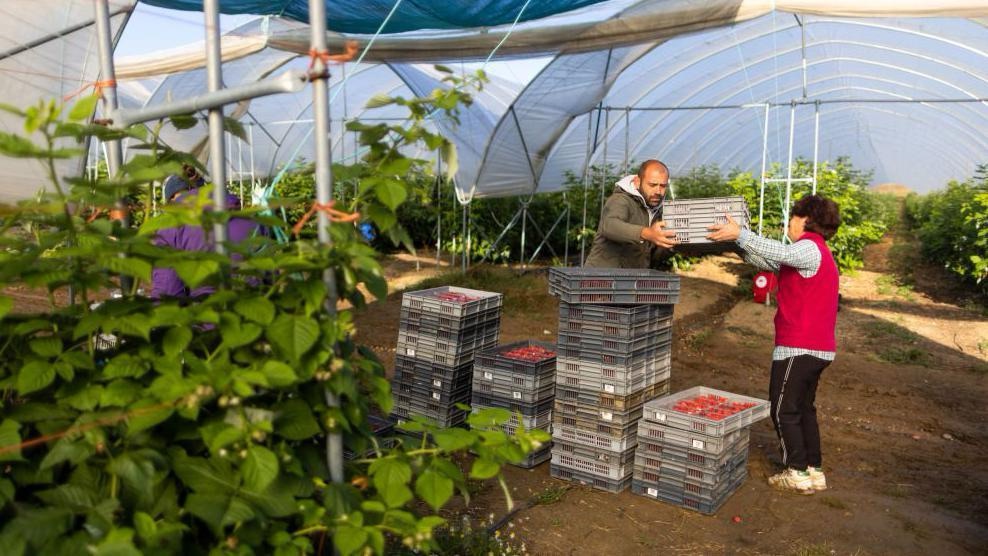
The conditions are the same, they work in England for a maximum of six months and return to their country of origin. The following year you can return to work, also for a maximum of six months.
This seasonal worker visa cannot be converted into a work permit outside the plantation sector.
According to the British Ministry of Home Affairs, which, among other things, oversees immigration affairs, if a seasonal worker visa holder changes jobs, the visa will not be valid automatically.
Foreign workers have long been the backbone of UK plantations, from tending to harvesting fruit and vegetables to packing. The types of fruit harvested include apples, pears, strawberries, yaws and others.
The picking season usually takes place from April or May. The need for seasonal workers increased after the UK withdrew from membership of the European Union or Brexit in 2020.
Before that, workers came from eastern European countries without needing work visas. The problem became more complicated when the Ukrainian war broke out so that many of the country’s citizens were unable to fill jobs in the British plantation and livestock sectors.
Reporting by journalist in England, Rohmatin Bonasir.
Baca artikel detiknews, “Inggris Kembali Pekerjakan Pemetik Buah Musiman Asal Indonesia” selengkapnya https://news.detik.com/bbc-world/d-7316428/inggris-kembali-pekerjakan-pemetik-buah-musiman-asal-indonesia.
——
Additional Reading:
The Grocer 30th Apr 2024: Growers brace for up to £90m in additional seasonal worker costs in UK in move towards internationally compliant zero cost responsible recruitment model for vulnerable migrant workers
3rd April 2024: Financial Times (London) UK employment – Britain’s seasonal worker scheme leaves many migrants in debt, research finds
3rd April 2024: Independent – Migrant fruit pickers saddled with debts of up to £5,500 to come to UK through government scheme
26th January 2024: UK Seasonal Worker Scheme Modern Slavery Issues: Indonesian seasonal fruit pickers landed in debt bondage challenges Home Office
26th Jan 2024: ATLEU – UK government fails to protect workers from trafficking and exploitation
26th Jan 2024: ATLEU – Challenge to government’s Seasonal Worker Scheme
25th Jan 2024 Home Office: UK government survey on experiences of seasonal workers scheme confirms the exceptionally high levels of issues (confusion, fees etc) faced by Indonesian and Nepali workers in 2021/2022
24th Jan 2024: ATLEU – Seasonal worker recognised as a potential victim of trafficking
12th January 2024: UK government ‘breaching international law’ with seasonal worker scheme, says UN envoy
FLEX 6th Nov 2023 – FLEX on the House of Lords Horticultural Committee report
FLEX 26th Oct 2023 – Seasonal Workers’ Rights; Who’s Responsible?
21st July 2023: Vulnerable UK migrant workers at risk as audits of farm recruiters stall
17th March 2023 BHRRC Blog Series: UK Seasonal Worker Scheme Endangers Vulnerable Foreign Workers. (My Op Ed)
23rd February 2023: Farm workers on UK seasonal visas to be guaranteed 32 hours a week
Other stories on challenges of UK seasonal worker scheme:
1. Working in the UK: Hundreds of Indonesian Citizens Escape, More Than 1,200 Workers from Indonesia Threatened to Cancel (BBC, 16th Feb 2023)
2. AG Recruitment, UK recruiter of debt-hit Indonesian and Nepali migrant workers, loses seasonal workers scheme license following forced labour related allegations, worker abscondments and asylum claims (Guardian, 10th Feb 2023)
3. Indonesian former fruit pickers become illegal immigrants and asylum seekers in the UK – ‘This is the easiest shortcut’ (BBC, 26th Jan 2023)
4. Home Office accepts recommendations in Chief Inspector’s report on immigration system as it relates to the agricultural sector (Freeths, 16th Jan 2023)
5. Immigration: Investors warn food companies about risk of forced labour on UK farms (Financial Times 19th Dec 2022)
6. Investor statement on the UK Seasonal Worker Scheme (Public Investor Statement 19th Dec 2022)
7. Hundreds of Indonesian fruit pickers in UK seek diplomatic help (Guardian, 2nd Dec 2022)
8. Seasonal worker visa puts migrants at risk of exploitation, say supermarkets (Guardian, 2nd Dec 2022)
9. Seasonal fruit pickers from Nepal left thousands in debt after being sent home early from UK farms (Guardian, 13th Nov 2022)
10. Indonesia to investigate claims fruit pickers in UK seasonal agricultural workers scheme charged thousands to work in Kent (Guardian, 29th Aug 2022)
